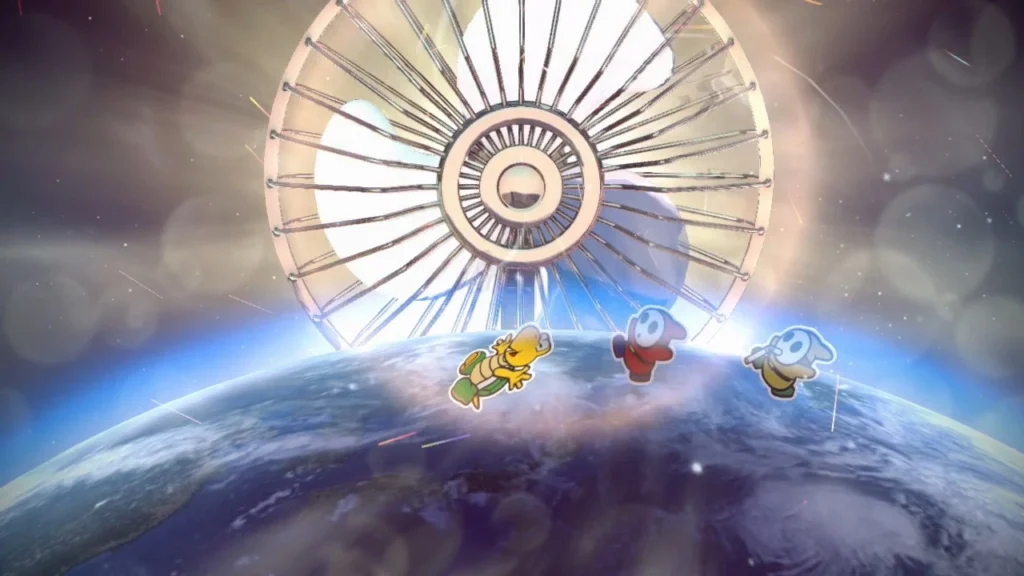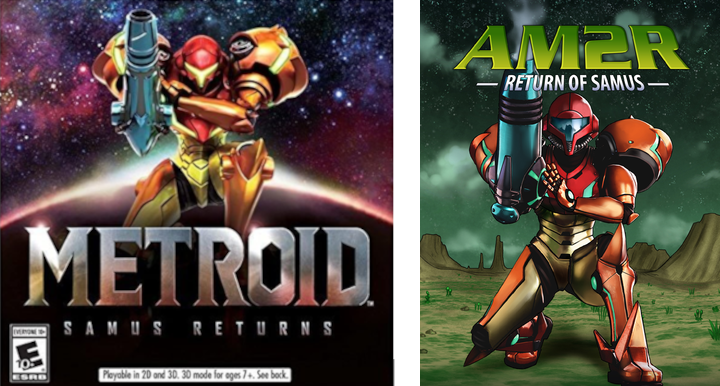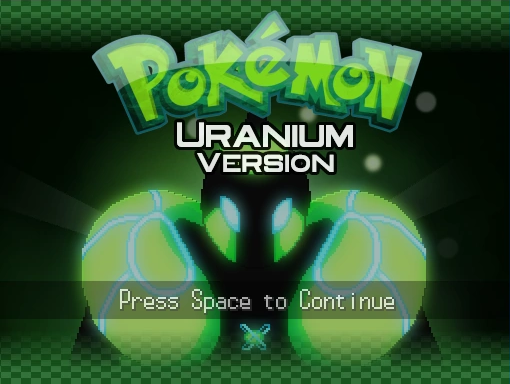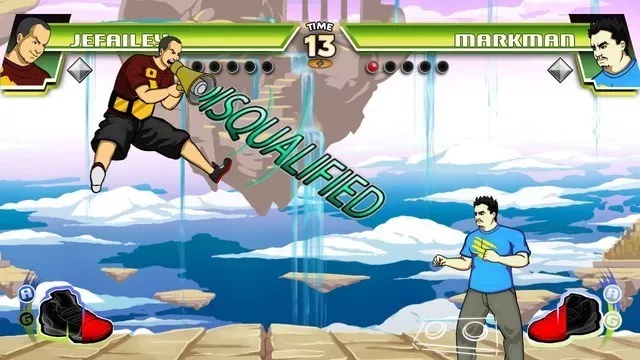Video game development is more accessible than it’s ever been. Today anybody can go download a program and start learning how to make games. Combine that with a games industry that has been around long enough to have games that people are nostalgic for and you can easily understand why fan games have come up more and more often in recent years.

We’re talking about fan games. Know the difference.
A fan game is a game based on an existing intellectual property (IP) created by a fan. Often these are created based on franchises that are underserved, or that just have fans wanting more of the IP. However, they naturally raise questions as to their legality. After all, a fan game is essentially the perfect example of infringement on an existing IP. At the same time, it doesn’t seem to cause harm to the developer. Some developers like Nintendo seem to take a very heavy-handed approach to fan works in an effort to protect their IP rights. Others like Sega seem to believe that the brand goodwill produced by allowing fan works to persist is worth the risk.
I didn’t think I’d have to write about this, but I keep seeing this question floating around so there’s clearly people asking. Luckily, there’s a very short answer.
Can I (legally) make a fan game?
No.
What if I’m giving it away for free? I’m not making any money on it!
Still no.
Unfortunately, that’s not a very thorough or satisfying answer, so let’s get into the why, and why you still see fan works in spite of them being infringement.
The Existential Threat of Intellectual Property Infringement
It’s important when discussing all of this to understand the IP holder’s point of view. Intellectual property is incredibly valuable to video game companies. A threat to the IP rights of a company like Nintendo that is based entirely on the sale of its intellectual property is a threat to the existence of the company itself. Nintendo themselves were involved in a case with Universal over Donkey Kong and its supposed similarity to King Kong which resulted in Universal losing the rights to the trademark of King Kong. As such, Nintendo is no stranger to potential loss of IP rights.

The threat of infringement from fan games to a publisher isn’t the potential loss of sales due to the existence of a competing fan game. The real threat is in the fact that allowing infringing works – including fan games – risks damaging the IP rights of a company, making it harder to argue against other malicious infringement in the future. While it’s very easy to claim that publishers are just greedy and don’t want anyone else profiting, the reality is that an IP holder has to protect their work to a certain extent to keep it.
Please understand, I’m not saying that’s how any of this should be. I’m saying how the system currently is and trying to understand why publishers and developers feel like they have to be protective of their IP.
The Exclusive Right to Create Derivative Works
Intellectual property refers to the ownership of creative works, rather than physical property. There are three main types of intellectual property: copyright grants protection over creative works, trademark grants protection over identifications of source and brand, and patent grants protection over inventions.
Ownership of any kind of IP doesn’t grant the holder the ability to create the thing, but the right to exclude others from using their IP. If a publisher owns the intellectual property of a particular franchise, they have the right to exclude everyone else from using that IP. An IP holder can grant a license to another party to use their intellectual property, but it is entirely at their discretion and is not likely to be granted to smaller developers.
That said, for smaller and mostly forgotten IPs, you can always ask. You may be surprised, especially if you have a solid prototype to show.
Unless another party has a license to use the IP, it is infringement, and the IP holder can enforce their IP rights against the infringer. Often enforcement is done through a cease and desist letter, where the holder of the IP warns that if the infringing party does not take down the infringing work, they may be sued. This legally puts the infringing party “on notice” that they are infringing and can be the first step of a larger lawsuit.
IP holders have certain rights against any would-be infringer. Among those rights is the right to create derivative works. These can be thought of as sequels or additional entries in a franchise, even those in entirely different mediums. A fan game (and arguably mods as well, which many fan games start life as) would be considered a derivative work, so copyright holders have the right to enforce against infringement.
Characters can also be protected by copyright, not just games or other works. A court case about the Batmobile held that characters (such as characters in a video game) can be entitled to copyright protection so long as they have “physical as well as conceptual qualities”, are “sufficiently delineated”, and are “especially distinctive and contain some unique elements of expression”. There is little question that most video game characters worth copying have these qualities, so the underlying characters from a franchise would be entitled to copyright protection, even if you’re creating something new with existing characters.
Fan games also infringe on Trademark Rights
In addition to copyright, a publisher and holder of IP likely would have trademark claims against any fan game creator. In fact, trademark is probably the bigger threat to game publishers from fan games; copyright is just the typical legal mechanism by which it is enforced.
Trademark protects identifications of source. If I see a copy of Metroid Prime 4 on the shelf or online, I know from the name that it’s from the Metroid franchise and it is produced by Nintendo. If I encounter a Metroid fan game using the Metroid trademark, it isn’t from Nintendo, despite the name. Someone else is using the trademark.

This is called “blurring” of a trademark. This confusion is what the trademark system seeks to protect against, and what creating a fan game infringes on, even if there are disclosures in the game itself or surrounding its distribution that it is a fan work. By using the name or branding of the original IP, the IP holder can claim trademark infringement. While you or I may not be likely to see a fan game and think it came from the original creator, the standard is if your average customer is likely to believe they came from the same source, not people who are particularly in the know about the video game industry. Trademark infringement differs from copyright infringement a bit in terms of enforcement, in that the holder has a greater duty to enforce against infringement in order to maintain their trademark, so an IP holder may be more incentivized in protecting trademark than copyright.
While infringement is illegal, it’s not a crime per se. As such, you’re not likely to see enforcement by the police or another government agency. It’s largely left up to the individual IP holders to enforce against infringement. This is why you may see some IP holders not enforce against particular fan games, or even outright endorsement. It’s entirely at the discretion of the IP holder.
It’s important to note here that not making money off of a fan game doesn’t mean it’s not damaging to a trademark. While someone profiting off of a protected trademark would be greater damage to a trademark than a free work, the fact that it’s out there in the first place risks the potential loss of a trademark if it is challenged in court. In a legal dispute, an attacker of intellectual property rights can point to existing fan works that the IP holder has knowledge of as evidence against the owner’s intellectual property rights.
Aren’t Fan Games Fair Use? Isn’t it Parody?
“Fair use” and “parody” are specific and narrow defenses to infringement and are very poorly understood online. In general, fan works would not be considered fair use or parody.
Fair use is an exception to copyright enforcement protected by the First Amendment. It can be found in section 107 of the Copyright Act. When analyzing if a work is a fair use exception, courts will look at four factors: the purpose and character of the use, the nature of the original work, the amount and substantiality of the original work used, and the effect on the market value of the original work. A review of a game using footage of the game as part of the discussion is likely to be found to be fair use. It is transformative and doesn’t replace the original work.
While the actual analysis of these four factors will vary from case to case depending on the facts, fan works generally (even if distributed for free and have all sorts of disclaimers about ownership) will likely not be found to be fair use. They are not transformative and can even act as a replacement for the original game, or any future game the developer may create.
On top of that, in order to even get to the point of raising the defense, you’d have to get to court, which is not a position that most people want to be in against very large IP holders. Remember again, fair use is a defense, not a legal right!

Parody takes a creative work and imitates it in an exaggerated, comedic fashion, usually as a criticism or commentary on the original work or something else connected to the work. Again, it’s a very narrow definition that can’t really be asserted concretely without first going to court. Even if you’re sure that you’re parody, you can never be totally certain. Fan games are often a labor of love for the original work, and are essentially acting as a new entry in the series, rather than commenting on or mocking the series itself. As such, the defense of parody is not terribly useful in most cases.
Why are Fan Games Illegal, but Fan Art (or other fan works) Aren’t?
While it is somewhat of a grey area, fan art1Fan art is where a fan of a particular thing makes art of the characters or whatever. In short, it is art based on the thing that is protected by intellectual property. is probably still infringement, though depending on the circumstances there may be a better argument for fair use than a fan game due to the transformative nature of fan art. It still makes use of someone else’s copyright and trademark. There have been cases by IP holders against Etsy shops, artists, fan writers, and more. You just don’t often hear about them because part of the settlement usually involves the parties signing a non-disclosure agreement. There’s also far less incentive for a developer to shut down fan art, even where it is being sold, because it is not a directly competing product in the same market, and therefore risks much less damage to the IP rights of the publisher.
You hear about fan games being taken down a lot more often than fan art because fan games are much more visible and involve much more work. As such, there are orders of magnitude more fan art out there than fan games. If an especially zealous IP holder decided to start enforcing its IP against every fan artist on the internet, they’d be playing a never-ending game of whack-a-mole. A few fan games every now and then? That’s reasonable. All of this is to say that it is both legally less necessary and practically more difficult to police fan art when compared to fan games.
So should I make a fan game?
This is probably a better and more interesting question. Whether or not you actually should make a fan game, not just whether or not you legally can. In practice, you could very well just go unnoticed, lots of games do. So should you make a fan game?
No. This is both a legal answer and a practical one. While you could always release your fan game and hope you’re not noticed by the publisher, you can’t really make money without drawing attention and creating more legal problems for yourself. There are cases where publishers have officially distributed fan works, but you shouldn’t count on that; they are few and far between. Games are hard work. Don’t undervalue your work by making something that can’t make money and could be shut down at any time, or even lead to lawsuits!

There is good news in all of this. If you’re putting in the work to create a fan game, you’re already 90% of the way to making something original. Put in that extra 10% of work and you’ll have something original that you can put out there without fear of an angry rights holder. Get inspired by your favorite game, but don’t just copy it. You can absolutely explore ideas and gameplay concepts similar to those in your favorite franchise, and may even be able to go in some amazing new and experimental directions now that you’re not bound to how things are done in the original game. Take inspiration, but don’t infringe, and you can create a spiritual successor to that dormant (or active) franchise you love without risking legal liability.
Worried about infringment? Want to play it safe? Have another question? Schedule a free consultation below.
